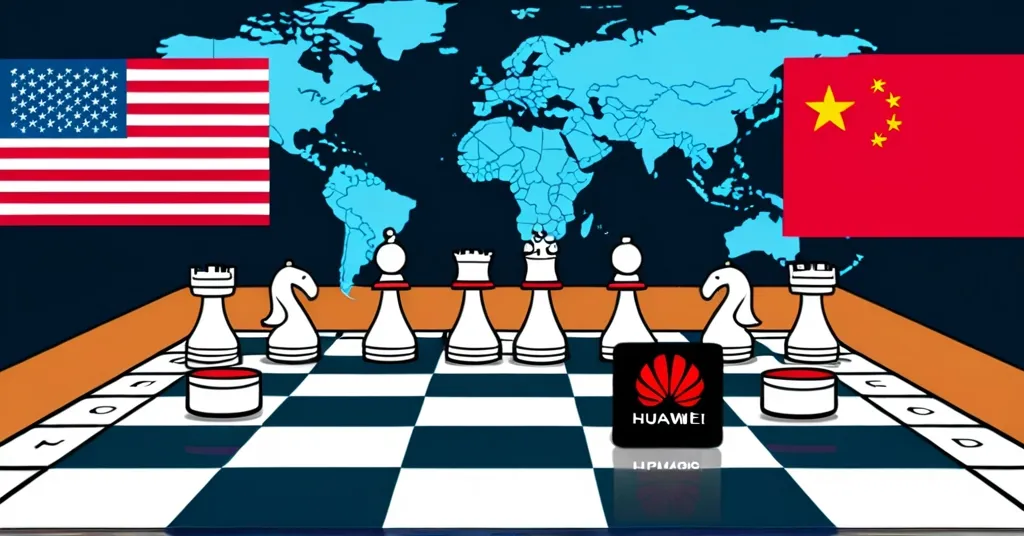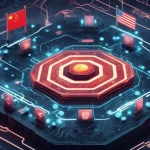US Blacklists Sophgo for Supplying AI Chips to Huawei, Intensifying Tech Rivalry with China

US Blacklists Sophgo Over Huawei AI Chip Scandal: A Turning Point in Global Tech Dynamics
The US government’s decision to blacklist Sophgo marks a significant development in the ongoing tech rivalry with China. Sophgo’s role in supplying AI chips to Huawei—skirting US sanctions—has brought the company under intense scrutiny. These AI chips, crucial for Huawei’s Ascend 910B processor, were obtained through controversial means involving the Taiwan Semiconductor Manufacturing Company (TSMC), raising critical concerns about global tech security.
- Sophgo’s addition to the Entity List highlights national security risks.
- The company provided AI chips to Huawei, leveraging TSMC’s production capabilities.
- TSMC has adhered to US export controls, not directly working with Huawei since 2020.
- Sophgo is connected to Bitmain, a crypto mining powerhouse, through founder Micree Zhan.
- The collaboration between crypto and tech sectors in China prompts international scrutiny.
Sophgo’s Role and Ties
Sophgo’s involvement with Huawei illustrates a deliberate attempt to bypass US sanctions established in 2019 to curb Huawei’s AI advancements. The connection with Bitmain is particularly noteworthy, as Micree Zhan, Bitmain’s founder, holds a 23% indirect stake in Sophgo. This relationship questions the independence of corporate operations and highlights the intertwined nature of China’s crypto and tech sectors.
Implications for TSMC
TSMC, the leading global chipmaker, finds itself at the center of this controversy. Despite complying with US export regulations and ceasing direct supply to Huawei in 2020, the procurement of chips through Sophgo underscores vulnerabilities in the semiconductor supply chain. This situation may prompt tighter regulations and increased vigilance from global stakeholders to prevent similar incidents.
AI Chips: Why They Matter
AI chips are crucial in driving technological innovations, powering applications from smartphones to autonomous vehicles. Their strategic importance cannot be overstated, especially as countries vie for dominance in AI technologies. The use of these chips in Chinese universities, government bodies, and police departments further elevates their role in modern infrastructure, raising concerns about foreign control over critical technology.
Global Tech Relations Impact
This blacklisting is a tactical US response to safeguard its technological edge. It underscores the complex interplay between technological advancement, international trade policies, and national security concerns. As Huawei aims to mass-produce the Ascend 910C chip by 2025, intending to compete with industry giants like Nvidia, the move places additional pressure on Chinese tech ambitions.
The broader implications of this development are profound:
- What are the potential outcomes for the global semiconductor industry?
- How will this affect US-China tech relations in the long term?
- What changes might occur in the integration of the crypto and tech industries?
The ongoing saga between US and Chinese tech firms remains a pivotal focus for policymakers, businesses, and tech enthusiasts. The need to balance competitive advantage with cooperative engagement is more pressing than ever.
As the situation develops, expert opinions and strategic insights will be crucial in navigating this geopolitical landscape. The blacklisting of Sophgo is not merely a punitive measure but a strategic maneuver in a larger chess game of technological supremacy. The world watches as the next moves unfold, shaping the future of global tech relations.



